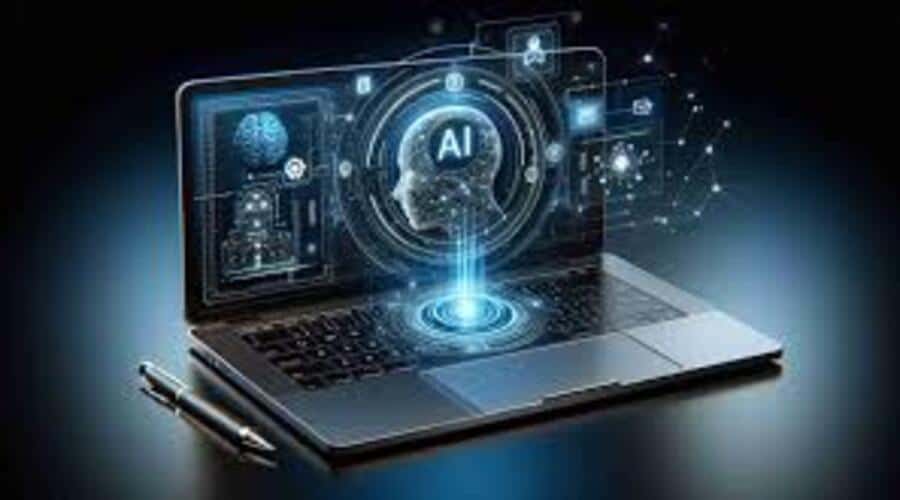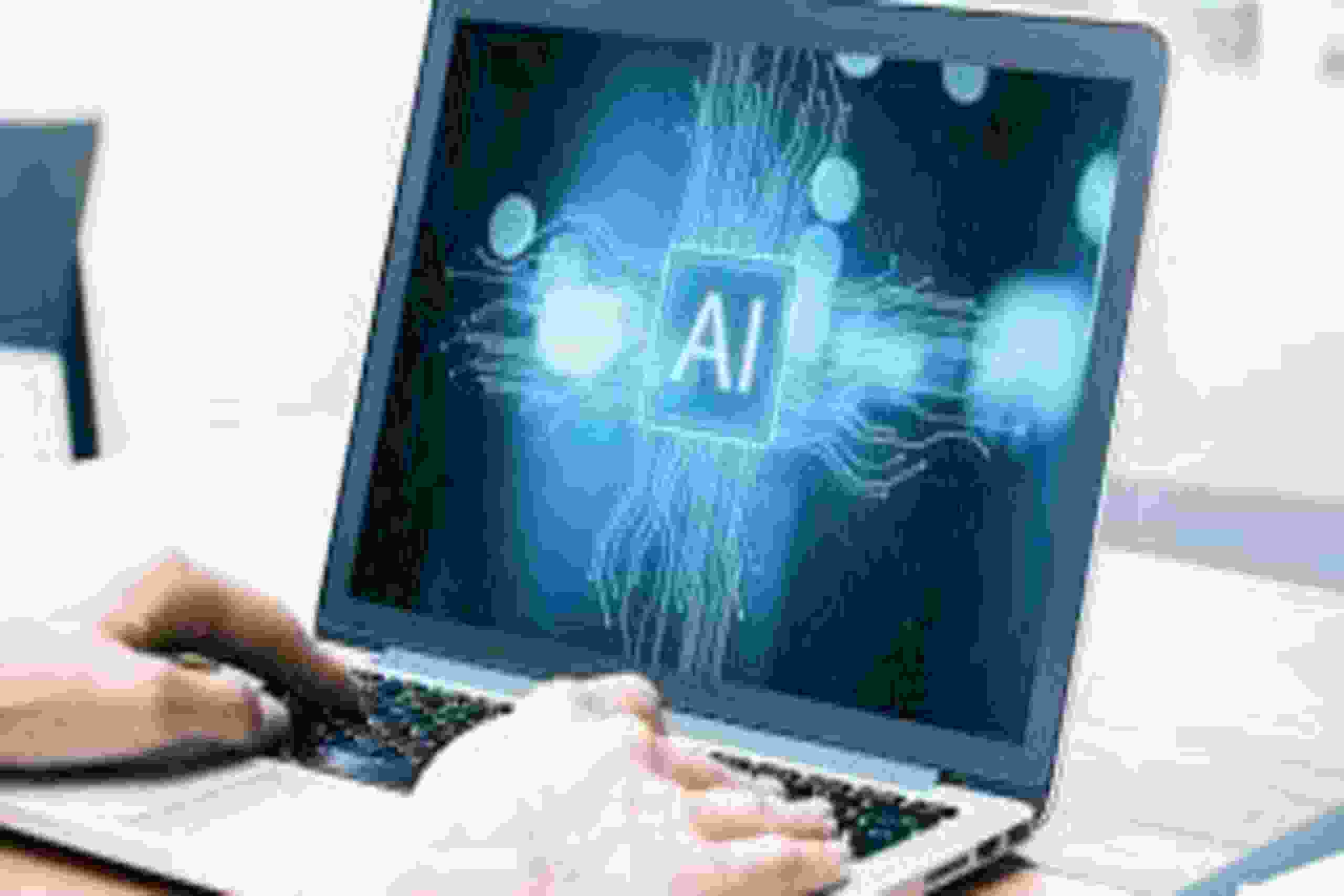Introduction
A few years ago, when people started talking about AI, it seemed like, okay, AI will come, but what’s the big deal? It will just do a few things. But now, look at the current times. Today, with the help of AI, films are being made, music is being created, apps and websites are being developed—who knows what else. If we talk about 2024, AI has finally made its way into laptops just like in every other field. Everywhere you hear about AI laptops. Let’s take a look at what makes these AI laptops different from other laptops.
I feel that everyone reading my blog is likely aware of generative AI or uses it. For example, if you’re a student, you might be using AI for your homework and studies, or if you’re a marketing expert, you might be incorporating it into your strategies. We all use AI in some way or another, and generative AI, in particular, is being used more frequently.
AI in Laptops
As we all know, AI is making our lives much easier, but many of us are unaware of the dark reality and dark side of AI that affects us. The biggest disadvantage of AI is its impact on our privacy and safety. Suppose you let generative AI perform a task or some work; AI sends our personal information to cloud servers, conducts research, and then provides you with your solution or final product. However, the issue here is that AI shares and saves our personal data on cloud servers. How this data is used in the future is unknown to anyone except the AI companies.
So, does this mean we should completely eliminate AI from our world? No, instead we should think about how to deal with these issues to solve the problem, because today, personal data is perhaps the most valuable thing, and its misuse is not good for us. To protect this data, some steps are finally being taken, one of which is “on-device AI,” a very good and powerful step. As the name suggests, on-device AI operates on your device using its power and data, rather than relying on cloud data. Even if cloud data is used, it will be encrypted. Mobile companies like Samsung and Apple have introduced this on-device AI feature in their smartphones, allowing you to summarize notes without internet access and view notification summaries on the lock screen in iOS 18. There are many other things you can do with the help of on-device AI, which is becoming like a real assistant. The day is not far when we will see our own AI assistants like JARVIS or FRIDAY from Iron Man.

On Device AI
Now, we wonder, on-device AI has come to mobiles, but what about laptops? I don’t know if you follow daily news, but Intel has been aggressively integrating and building AI into its chipsets, especially in its Core Ultra line of processors. These processors are more powerful than Intel Core 13 and cheaper than Core 14. In these Ultra line processors, Intel is separately adding a Neural Processing Unit (NPU) alongside the GPU and CPU. The NPU will be dedicated specifically to low-level AI tasks.
Basically, the NPU doesn’t make our laptop super intelligent or turn it into an AI machine, but it does make our laptop super efficient and fast, using the right amount of power and time for AI tasks. For on-device AI, it’s not just necessary for the machine’s AI to be perfect; the chipset optimization must also be good so that our laptop is energy efficient and can handle AI well. To tackle this, Intel introduced the new NPU processor, ensuring laptops can handle AI effectively and efficiently. When the laptop requires normal or low-level AI tasks, they will be processed by the NPU, which uses very little power and is effective. For high-power AI tasks, it will rely on the CPU and GPU.
It’s not like on-device AI is being introduced in laptops for the first time. It was already there, for example, in video calls to blur backgrounds and in Premiere Pro to automatically remove backgrounds. But now, AI tasks will be divided into power consumption categories, making our laptops more efficient with AI tasks.
Now, laptops have dedicated on-device AI buttons that allow you to access Windows’ separate AI after pressing them. This Windows AI is called Copilot, which will function as an assistant. The efficiency and speed of Copilot are significantly enhanced by the NPU.
Evolving AI in Laptops
Also to these advancements, laptops with AI features have become increasingly sophisticated, offering voice-activated commands that allow users to control the laptop, launch applications, and dictate text without typing. This hands-free approach enhances user convenience and accessibility. AI also optimizes laptop performance by dynamically adjusting CPU and GPU usage based on application demands, resulting in smoother performance and longer battery life. Predictive typing capabilities analyze a user’s typing patterns, suggesting the next word or phrase to save time and improve typing accuracy. Moreover, real-time language translation powered by AI facilitates communication across different languages, making global interaction seamless.
Noise cancellation is another significant benefit, filtering out background noise during video calls or audio recordings to ensure clear and crisp audio. Security enhancements are also paramount, with AI detecting and preventing malware attacks, as well as identifying and authenticating users to safeguard personal information. Adaptive battery management learns a user’s typical usage patterns, adjusting battery settings to maximize battery life efficiently.
For those interested in photography, AI can automatically enhance photos by adjusting brightness, contrast, and color balance, even removing unwanted objects. Content creators will appreciate AI-powered tools that assist with writing, editing, and design, offering suggestions, generating creative text formats, and creating basic image designs. With these comprehensive features, AI integration in laptops is set to revolutionize user experience, efficiency, and creativity
As we look ahead, the integration of AI into laptops marks a significant evolution in how we interact with technology. From simplifying everyday tasks through voice commands to optimizing performance and enhancing creativity, AI has woven itself into the fabric of our digital lives. While its capabilities are vast and promising, there are critical considerations regarding privacy and data security that must be addressed.
The advent of on-device AI and dedicated processors like Intel’s NPU represents a crucial step towards ensuring efficiency and protecting personal information. These advancements not only empower users with smarter, more responsive devices but also pave the way for innovations that were once confined to science fiction.
As we embrace these advancements, it’s essential to navigate the ethical implications and ensure that AI serves humanity responsibly. By harnessing its potential while safeguarding privacy, we can unlock new possibilities for productivity, connectivity, and creativity in the digital age. AI in laptops is not just about technological prowess; it’s about enhancing our lives in meaningful and sustainable ways, ensuring a future where innovation and humanity go hand in hand.



